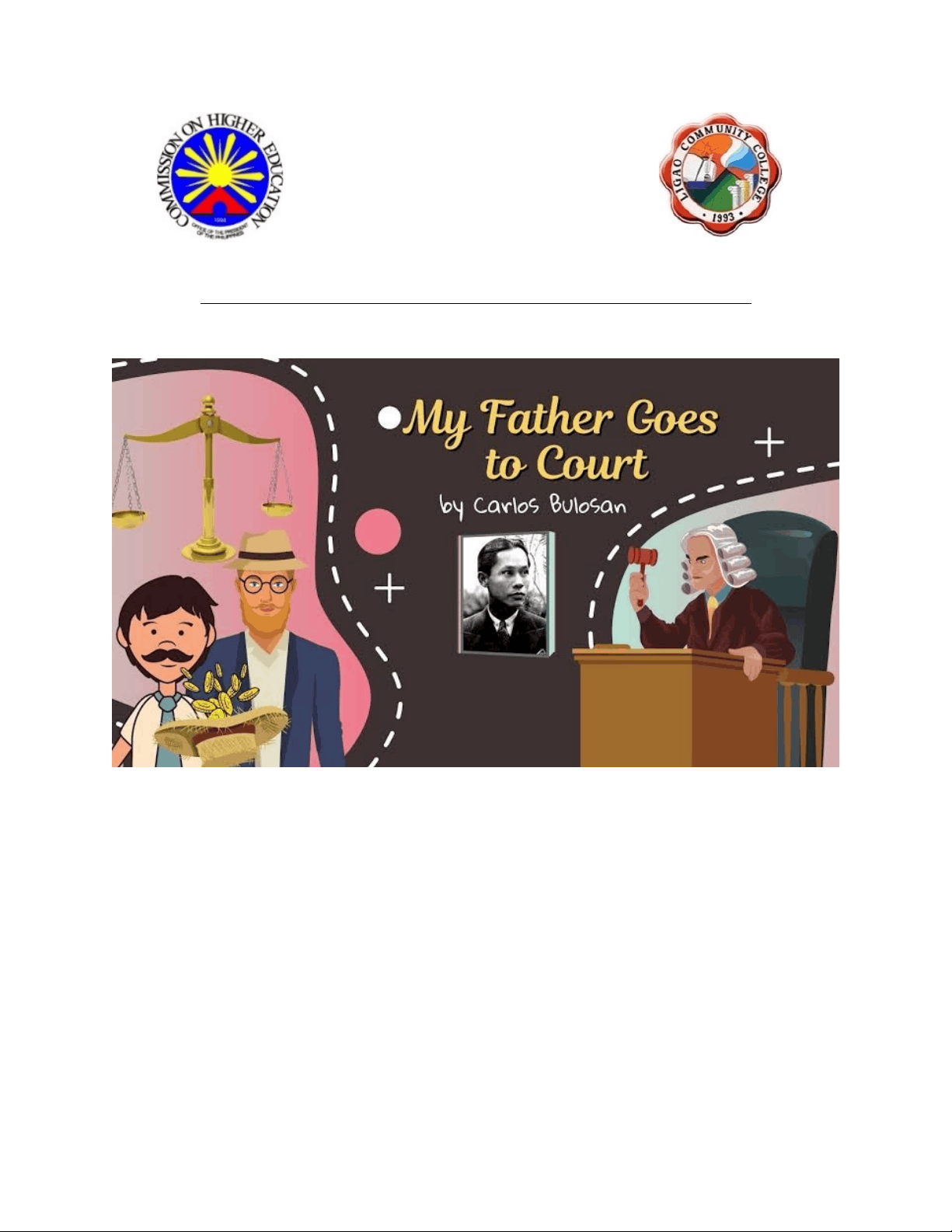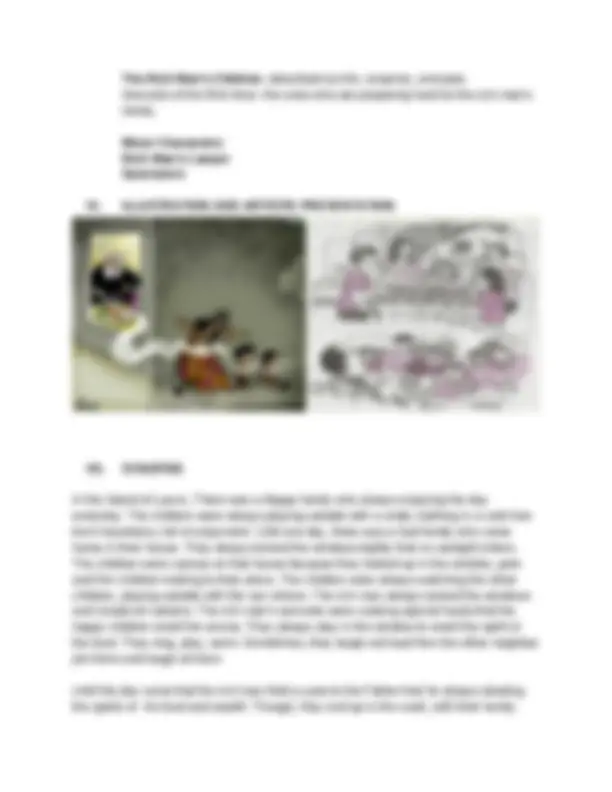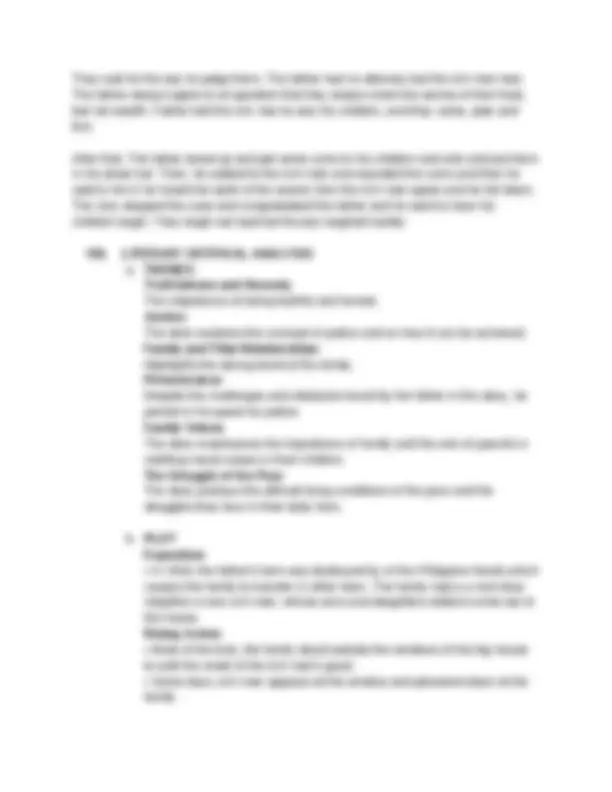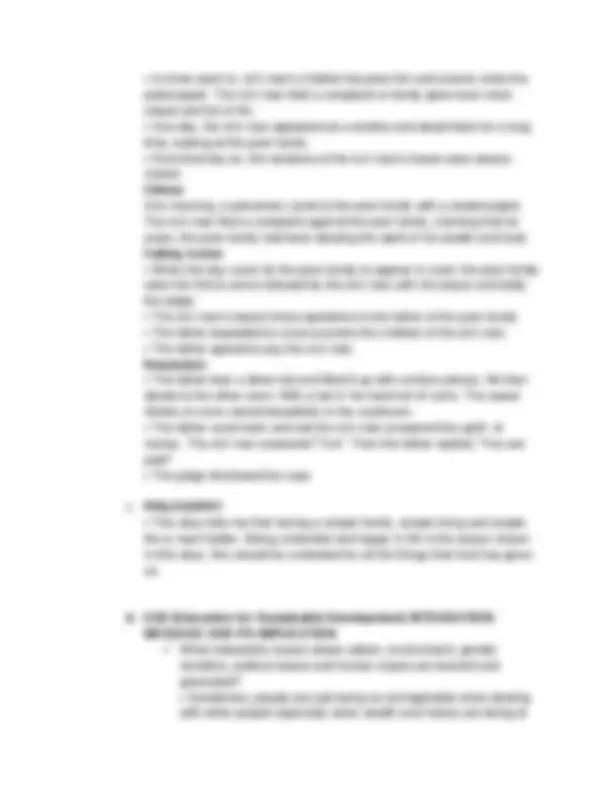





Study with the several resources on Docsity

Earn points by helping other students or get them with a premium plan


Prepare for your exams
Study with the several resources on Docsity

Earn points to download
Earn points by helping other students or get them with a premium plan
Community
Ask the community for help and clear up your study doubts
Discover the best universities in your country according to Docsity users
Free resources
Download our free guides on studying techniques, anxiety management strategies, and thesis advice from Docsity tutors
Compilation of different compendium about different literature with ESD
Typology: Study Guides, Projects, Research
1 / 7

This page cannot be seen from the preview
Don't miss anything!




Republic of the Philippines Commission on Higher Education Region V LIGAO COMMUNITY COLLEGE Guilid, Ligao City GREAT BOOKS: A COMPENDIUM OF TALES AND THOUGHTS Prepared by: Amie Chris Paular Crishelle Jade Ormillo Ana Marie Buenaobra
"My Father Goes To Court" by Carlos Bulosan II. AUTHORSHIP Carlos Bulosan was a Filipino-American novelist and poet. He was born in Binalonan, Pangasinan on Nov. 24, 1913 and died on Sept. 11, 1956. Immigrated to America on July 1, 1930. His best known work today is the semi-autobiographical "America is in the heart" sometimes subtitled "A Personal History" but he first gained game for 1943 essay on The Freedom from Wart. Though Bulosan was only 43 years old when he died of Tuberculosis- Complicated Pneumonia in Seattle in 1956, he left behind a large body of poems, novels, and short stories, plays and correspondence on a range of related topics. III. LITERARY GENRE My Father Goes to Court is a humorous story by Carlos Bulosan. IV. HISTORICAL BACKGROUND It was published in 1943 and depicts two families that have a huge wealth gap between each other. The story is set in the Philippines, in the island of Luzon in 1918. V. CHARACTERS AND CHARACTERIZATION The Narrator - he is one of the children of the farmer/farm owner. The Father/Farmer/Farm Owner - the father of the narrator. Since it was mentioned in the story that he owned a farm, I might refer to him as the farmer or farm owner, to avoid confusion. Mother- the wife of the Farmer/Farm Owner. The Children of the Farmer - the siblings of the narrator. They were referred to as strong, robust, and cheerful. They were accused of stealing the spirit of the food which was prepared for the rich man's children. The Rich Man- the neighbor of the narrator when they moved to town. Described as someone who is not sociable, especially to those who has a lower status in life than him. It is implied in the story that he is also stupid. He accused the family of the narrator of stealing the spirit of the food which his servants prepared. The Judge - the one who is in charge of the case filed by the rich man. He was described as someone who is old-looking.
They wait for the jury to judge them. The father had no attorney but the rich man had. The father always agree to all question that they always smell the aroma of their food, but not wealth. Father told the rich man to see his children, and they came, pale and thin. After that, The father stood up and get some coins to his children and wife and put them in his straw hat. Then, he walked to the rich man and sounded the coins and then he said to him if he heard the spirit of the sound, then the rich man agree and he fell down. The Jury stopped the case and congratulated the father and he want to hear his children laugh. They laugh out loud but the jury laughed harder. VIII. LITERARY CRTITICAL ANALYSIS a. THEMES Truthfulness and Honesty The importance of being truthful and honest. Justice The story explores the concept of justice and on how it can be achieved. Family and Filial Relationships Highlights the strong bond of the family. Perseverance Despite the challenges and obstacles faced by the father in the story, he persist in his quest for justice. Family Values The story emphasizes the importance of family and the role of parents in instilling moral values in their children. The Struggle of the Poor The story portrays the difficult living conditions of the poor and the struggles they face in their daily lives. b. PLOT Exposition
https://www.newyorker.com/magazine/1943/11/13/my-father-goes-to-court X. COPY OF THE ORIGINAL LITERARY WORK / MANUSCRIPT Prepared by: Buenaobra, Ana Marie Ormillo, Crishelle Jade Paular, Amie Chris (BSEd 2 SOCIAL STUDIES)